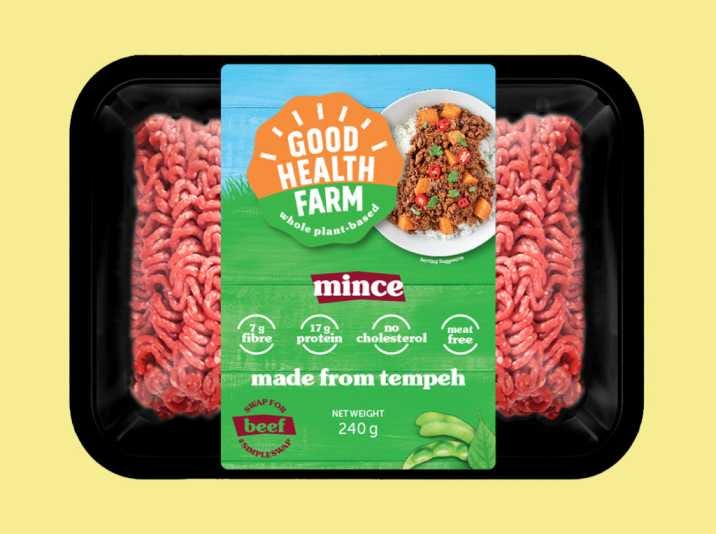Better Bioeconomy Weekly - Aug 28th 2023
A $1.67 trillion food market that's largely unexplored
Welcome to the 30th edition of Better Bioeconomy Weekly! 🎉
*Pats myself on the back*
*Realizes it’s already the end of August and that time marches on, unceasing and unforgiving*
*Continues typing*
Thanks a lot for your continued support! 🙌🏾
BIO BUZZ
🦌 Jimi Biotech has developed the world's first deer antler stem cell line with rapid growth capabilities
Deer antlers are a lucrative market in China due to their dietary and medicinal uses, valued at over 3 billion RMB, with potential anti-ageing properties. Antlers are sold at tens of thousands of yuan per kg or more.
The company plans to offer premium deer antler products first, capitalizing on its cost advantage, before expanding into cultivated meat products.
Jimi’s AI-driven system, JEVOS, has already been used to obtain cell lines from various species, including cattle, and chickens, and they plan to submit regulatory approval for their deer antler products in 2024.
Read full article - vegconomist
🐮 Omeat is rewriting the rules of cultivated meat production with the launch of Plenty, a slaughter-free and affordable substitute for FBS
FBS, the conventional growth medium for cultivated meat, is harvested from pregnant cows during mutual slaughter, raising ethical concerns. It's also expensive. Omeat's Plenty offers a humane, scalable, and cost-effective solution.
Plenty is made from regenerative plasma collected from cows on Omeat's carbon-negative farm. The plasma extraction process, similar to human plasma donation, allows for frequent collection without harming the cows. This approach generates more meat per cow, making it efficient and more planet-friendly.
Plenty doesn't require FDA or USDA approval as it's not classified as food, allowing Omeat to generate revenue immediately. Plenty also appeals to industries like regenerative medicine and vaccine production that utilize cell-culture technology.
Read full article - Green Queen
😸 CULT Food Science and Umami Bioworks (formerly Umami Meats) have partnered to create world’s first cultivated fish cat food brand
The brand, Marina Cat, offers a high-protein, low-calorie snack for cats with omega 3, 6, and 9 fatty acids, benefiting cognitive function. Marina Cat plans to start production in the near future with a goal of widespread availability by 2024.
Cats and dogs, if considered a nation, would be the world's fifth-largest meat consumers. Cats are obligate carnivores, so meat consumption is high among them, indicating the demand for slaughter-free meat options for pets.
The collaboration addresses the issue of overfishing, reduces GHG emissions, and provides healthier alternatives for pets while promoting the preservation of ocean food sources and ecosystems.
Read full article - Green Queen
🇨🇦 The Better Butchers plans to open the world's first cultivated meat butcher shop in Vancouver
The founder sees cultivated meat as a solution to environmental, ethical, and health concerns. He also sees it as a solution to potential consumer adoption issues of plant-based meat, such as taste, texture, and long ingredient lists.
The company will initially focus on direct-to-consumer sales, with prototypes for pork sausages, meatballs, and marinated steaks expected by Q1 2024.
Regulatory process in Canada is anticipated to take about 12 months after completing prototypes to get the product approved for sale. The company also plans to pursue regulatory approval in the United States.
Read full article - vegconomist
🍯 MeliBio's sweet and buzzworthy journey
MeliBio, initially focused on precision-fermented honey, shifted its product direction to plant-based honey called Mellody due to customer demand. This shift accelerated their product launch timeline from 5-7 years to 3 years.
The company is set to launch its plant-based honey product in Europe through a partnership with Narayan Foods, targeting 75,000 stores in Germany and the UK. The focus is on Europe, the UK, and the US in the short term, with potential consideration of expansion into the Asian market in the future.
MeliBio is preparing for a Series A funding round to support its expansion, with a focus on market testing and customer feedback as key drivers. Having achieved medium-scale production (10,000 lbs/day) capacity in just 3 years, the company plans to achieve price parity with traditional honey types by 2024.
Read full article - Green Queen
🇲🇾 Good Health Farm unveiled the world's first tempeh beef mince
The Malaysian startup's tempeh-based meat mimics the look, taste, and cooking properties of traditional beef mince while maintaining a competitive price point.
Good Health Farm uses proprietary techniques for its tempeh-based mince production, offering a more cost-effective and simplified alternative to the high-moisture extrusion industry standard.
The company collaborates with a Singaporean chef to create ready-to-heat Asian cuisine meals, targeting busy professionals and parents seeking convenient, high-quality food solutions.
Read full article - Green Queen
🌱 Vegbloc is embracing a plant-based protein that's its own delicious creation over meat imitation
Vegbloc is a novel plant-based protein that aims to disrupt the traditional protein market. It's not trying to imitate meat, but it offers a new way to cook with ingredients like quinoa, lentils, and split peas.
The product is marketed as a clean-label, whole-food ingredient made from vegetables, seeds, and pulses. It has a simple ingredient list, is high in protein, fiber, and even contains omega-3.
Vegbloc's carbon rating is on par with tofu and superior to mass-produced animal proteins. Vegbloc aims to launch in the UK in January 2024 and expand into foodservice, capitalizing on its unique approach to plant-based cooking.
Read full article - Green Queen
🤖 GreenProtein AI sets out to redefine the feel of plant-based meat and fish by optimizing the extrusion process
Texture challenges have hindered the mainstream adoption of plant-based meat due to costly extrusion R&D. AI's predictive capabilities can replace trial-and-error methods, leading to reduced prices and faster innovation.
GreenProtein AI aims to collaborate with manufacturers and facilities, providing solutions for more efficient production, competitive pricing, and wider industry growth.
GreenProtein AI could accelerate texture improvements, expand market adoption for plant-based meats, and offer predictive models to overcome cost barriers for innovative startups in the sector.
Read full article - vegconomist
🇦🇺 Kerry has partnered with Unigrain to support the development of dairy alternatives in APAC
The collaboration brings together Kerry's technology, R&D, processing solutions, and Unigrain's oat expertise to create innovative oat-based products and solutions.
Kerry and Unigrain will focus on technology development, applications, flavours, and nutrition to create a unique dairy alternative expertise ecosystem, inviting other partners to join in promoting sustainable nutrition solutions.
Both companies will promote each other's solutions to customers, focusing on oat-based applications, to tap into the growing dairy alternative market APAC which is projected to reach $12B by 2028.
Read full article - Food and Drink Business
MACRO STUFF
🕌 A food market valued at $1.67 trillion that's still largely unexplored
The Muslim population is projected to reach 30% of the world's population by mid-century. India, despite being Hindu-majority, is set to have the world's largest Muslim community by 2030, with 250 million adherents. The country also expects to see a 17% increase in national meat demand by 2030.
There is a lack of clarity on the Halal status of alternative proteins, especially cultivated and hybrid products. Many Muslim consumers desire Halal certification from their own country's authorities to ensure the acceptability of these novel products.
Alt proteins are seen as a solution to food insecurity in Muslim-majority countries and could reduce the overreliance on imports from non-Muslim-majority countries. This presents a huge economic opportunity for Halal alt proteins, potentially creating jobs and supporting the growth of Muslim-owned food businesses.
Read full article - Green Queen
🏁 Could Formula 1's engineering secrets hold the key to transforming the future of sustainable food production?
Formula 1 (F1) has evolved into a pinnacle of engineering innovation, with a primary goal of winning races. It has significantly benefited from modelling and simulation (M&S), which has helped improve performance and safety in racing cars.
The alt protein sector can learn from F1's success by adopting M&S techniques. M&S involves creating mathematical models and using computer simulations to predict outcomes, reducing the need for time-consuming and costly experiments.
M&S can drive food industry progress by enabling new product development, process optimization, cost reduction, and eco-friendly practices. It can also enhance understanding of consumer trends, extend product shelf-life, and cut food waste.
Read full article - vegconomist
🇬🇧 The UK alternative protein industry has the potential to be worth £6.8B annually and generate 25,000 jobs by 2035
Green Alliance suggests that the UK can become a global leader in alt proteins, citing customer demand, an established industry, and high food quality standards as competitive advantages.
Investment and government support are crucial to compete with countries like the Netherlands, Denmark, and China, which are investing more heavily in alt protein production.
Green Alliance recommends policies such as providing £250 million to production clusters, reforming novel food regulations, and strengthening links between farmers and alt protein companies to shape the industry's future.
Read full article - vegconomist
Hungry for a weekly feast of news and updates on the future of food? Devour our free subscription! 👇🏾
BIO BUCKS
🥛 Perfect Day sells The Urgent Company – which includes Coolhaus and Brave Robot and its other subsidiaries – for $1.25M to Superlatus
The US precision fermentation pioneer Perfect Day's decision to divest its consumer-facing businesses aligns with its goal to refocus on its B2B operations.
Superlatus, which recently merged with Trxade Health, plans to use this acquisition to accelerate the production of sustainable food products, expand into new regions, and increase the market presence of the acquired brands.
Both companies share a commitment to sustainable and equitable food, with the deal reflecting their missions to transition products to animal-free alternatives. For Perfect Day, it’s also a response to changing investor expectations in the current economic climate.
Read full article - Green Queen
🍄 Enough secured €40M in Series C funding to accelerate production of its mycoprotein product
The Scottish-Dutch food tech company’s product, Abunda, is made from fungi via biomass fermentation, using sustainably sourced grains. It’s highly efficient, with 93% less water, 97% less feed, and 97% fewer carbon emissions than beef.
Enough plans to scale its manufacturing facility from an initial production of 10,000 metric tonnes of Abunda per year to 60,000 metric tonnes annually by 2027, equivalent to producing one cow's worth of protein every two minutes.
Enough aims to scale production significantly, with plans to replace five million cows or one billion chickens by 2032, making it a leading player in sustainable protein production.
Read full article - Green Queen
🧫 Jellatech secured $3.5M in seed funding to enhance the production of cell-based collagen and other proteins
The funding will be used to scale up production, establish partnerships, and commercialize animal-free proteins for various industries including F&B.
Jellatech's technology eliminates the need to extract proteins from animals, offering a sustainable and ethical alternative by growing proteins in bioreactors.
The global collagen market is rapidly growing, with a projected CAGR of 10.2% until 2030, making Jellatech's innovative approach highly relevant and promising.
Read full article - Green Queen
🥇 Two students won 25,000 QAR as the top prize in FoodTech for 3D-printed vegetable idea
Mohammad Fadhel Annan and Lujain Al Mansoori’s idea for 3D-printed vegetables, an alternative to farming that could bolster food security in places like Qatar, where there is very little arable land.
Annan is working on adapting 3D printer technology to produce food, using a specialized 3D printer with edible inks that are solidified by UV light. Al Mansoori envisions the potential for bulk food production, reducing time and cost compared to traditional farming methods.
The students' success has led to their inclusion in QDB's startup program, offering them expert guidance for further development.
Read full article - Fresh Plaza
Got a taste for this newsletter? Dish it out to your friends!👇🏾
SOCIAL FEAST
🤯 South African actor and comedian Siv Ngesi’s priceless reaction to Newform Foods’ cultivated lamb meatballs
Watch video on LinkedIn - Brett Thompson
🍟 Plant-based proteins must break free from fine dining exclusivity and infiltrate fast food joints
The experience of seeing vegan sausage ravioli at an airport lounge and seeing how popular it was among lounge visitors is a model for how plant-based protein can succeed in the market.
Plant-based protein companies should focus on making their products widely available, including in fast-food restaurants, to normalize their existence and appeal to a broader audience.
“Accessibility is the way forward. Limiting exposure to your product to only Michelin-star restaurants keeps concepts unattainable. Keeps that air of prestige and pretension. It reinforces the idea that vegans are out of touch with the real world.”
Read full article - Natalia Sokolova
📉 Oatly stock is teetering on the brink of delisting
Oatly and WeWork, have both seen massive declines (>90%) in their stock prices since IPO and are at risk of being delisted from the NYSE if their shares trade below $1 for an extended period. WeWork announced a stock split to prevent delisting.
Both companies made similar mistakes by prioritizing market share and rapid expansion over organic growth. Oatly specifically expanded too quickly, neglected unit economics, and invested heavily in CAPEX, leading to reduced profit margins and inventory write-offs.
To improve its financial situation, Oatly can consider reducing co-packers, halting expansionary CAPEX, and consolidating production to enhance its bottom line. However, a complete turnaround is unlikely given the challenging economic outlook.
Read full post on LinkedIn - Oliver Fuss
EAR FOOD
💰 Democratizing angel investing and other innovations in climate tech investing
Show: Another ClimateTech Podcast
Host: Ryan Grant Little
Guest: Arman Anatürk, Co-Founder at HackCapital
HackCapital offers a platform to create investment vehicles and pool capital from diverse investors. Arman mentioned that HackCapital’s mission is to democratize angel investing for small-ticket investors so that they can invest early in promising startups.
The episode discusses novel approaches for startups, fund managers, and angel investors to engage in climate tech funding, ranging from micro funds to Special Purpose Vehicles (SPVs), M&A strategies, and secondary markets.
HackCapital stands out by using a securitization structure that streamlines administration and eliminates the limitations associated with traditional SPVs. This enables a more inclusive and extensive network of investors in climate tech.
📈 TiNDLE sees long-term growth in plant-based despite current downturn
Show: Soup-To-Nuts Podcast
Host: Elizabeth Crawford
Guest: Andre Menezes, Co-Founder and CEO at TINDLE Foods
TINDLE is driven by a strong environmental mission rather than just following food trends. The company aims to replace animal farming as the primary source of protein production to counter the negative impacts of climate change.
Andre mentioned that TINDLE's strategy focuses on creating plant-based meat products that are flavorful and delicious, recognizing that meat and animal products are integral to social occasions.
Despite challenges in the plant-based protein industry, he sees these hurdles as part of an industry "adjustment," with long-term growth potential as the category matures.
THAT’S ALL FOR THIS WEEK!
If you are interested, here are some other STEM-related newsletters that I’m reading:
📱 The Rundown AI: Get smarter on AI. Get the rundown of the latest news, tools, and step-by-step tutorials— all in just 3 minutes a day.
💡 Important, Not Important: Science for people who give a sh*t.
📖 TLDR Newsletter: Get smarter about tech in 5 min
💊 Healthcare AI News: 5 minutes or less to elevate your Healthcare knowledge with expert-curated content.
🧠 The Intelligence Age: AI Newsletter for Business Leaders. Written by AI developers and researchers from NASA, Stanford, and Goldman Sachs.
🤖 Bot Eat Brain: AI is eating the world and your brain is on the menu. Stay one step ahead of the bots.
Some newsletter links may earn me an affiliate commission (gotta get that bag, you know).
💬 I'd love to connect with you! Say hello on Twitter and LinkedIn.
Take care and have an awesome week! 🙌🏾







